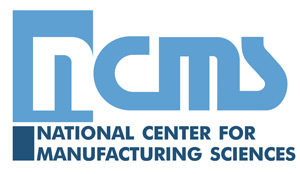Extended Life of Lead-Acid Deep Cell Cycle Batteries Through a Planned Maintenance System
NCMS Project #: 140510
Problem: The U.S. Department of Defense (DoD) spent $192M in battery purchases in 2012 according to Defense Logistics Agency (DLA). One very common type of battery DoD uses is a deep cell cycle lead-acid batteries. These batteries are used in heavy equipment, such as: electric forklifts, merchandise pickers, construction vehicles, tanks, etc. These batteries are typically 24-volt, 36-volt, 48-volt units. They produce electricity by chemical reaction between the interior lead plates and sulfuric acid.
The reason batteries do not last forever is multi fold: improper connection, lack of terminal cleaning, keeping proper fluid levels, etc. The primary mechanism for finite battery life results when during continuous battery usage, sulfuric acid crystals form on the interior battery components. This mechanism is called battery sulfating. The rate of battery sulfating is dependent on multiple factors, but when interior battery fluids are low, the sulfating corrosion happens much more rapidly.
Benefit: Extend the life and reduce the total ownership cost of batteries. A planned maintenance system and battery de-sulfating method which can be easily and efficiently deployed.
Solution/Approach: The purpose of this CTMA initiative is to increase the life and reduce the total ownership cost of Deep Cell Cycle Lead-Acid Batteries to DoD through chemical de-sulfating processes.
The industry partner will provide the de-sulfating system to the participating DoD activities and will install the system on batteries targeted for this evaluation. In addition, the industry partner will train and consult with DoD personnel on how to install, test, analyze, perform planned preventive maintenance and recondition lead-acid batteries with their Battery De-Sulfate Chemical Concentrate [TBDSCC] product and methods.
Impact on Warfighter:
- Extend the life and reduce the total ownership cost of batteries
- Planned maintenance system and batter de-sulfating method which can be easily and efficiently deployed
DoD Participation:
- U.S. Air Force, Langley AFB
- U.S. Navy, Norfolk NSY
- DLA Distribution, New Cumberland
- U.S. Marine Corps, Fleet Vehicle Management
Industry Participation:
- TECK Corp
- NCMS
Benefit Area(s):
- Cost savings
- Repair turn-around time
- Maintenance avoidance and reliability
- Improved readiness
